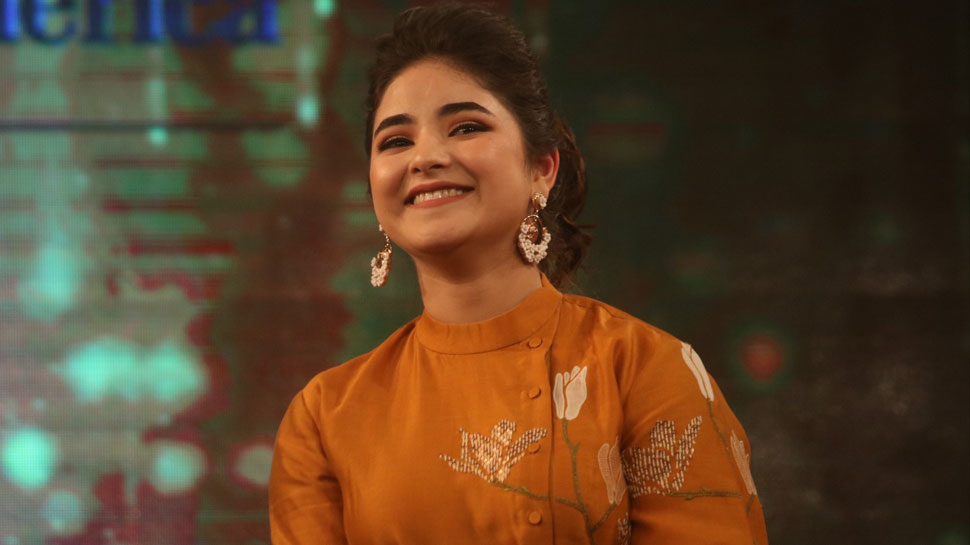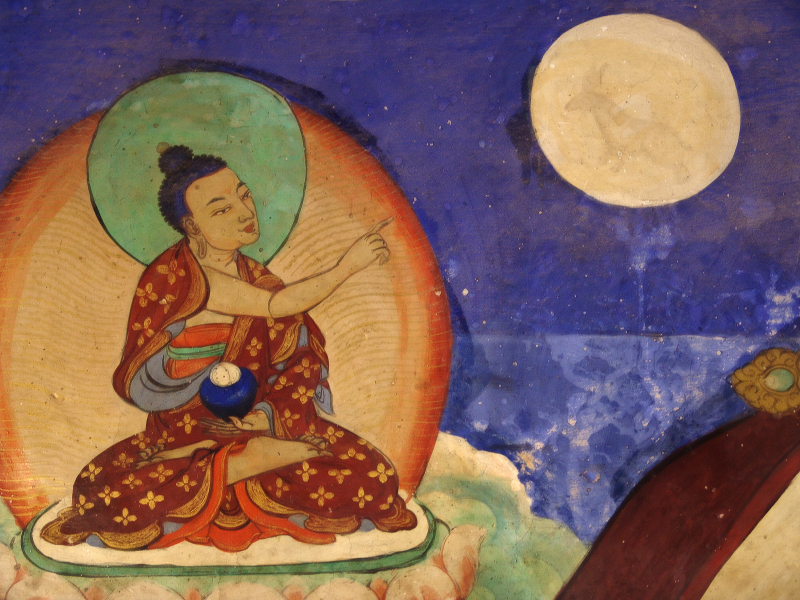Zaira Wasim’s Facebook post, as some might say has got undue attention from both the media and the public. This is not so much a response to what Zaira has said but instead is an attempt to decode the disturbing undercurrents that exist beneath; the ideological colouring that compulsively makes us classify things into black or white.
The way I see it, the current discourse around Zaria’s comment is not of engaging with her beliefs but instead it appears to me that her beliefs and actions themselves have become a threat to the larger public discourse. I merely want to question that part of our discourse which in my view ends up isolating the person/community and our own public discourse from more serious conversations.
These could be conversations that would potentially lead to asking questions that would have given the anxieties of many like Zaira a voice and a way forward and could also bring about the questioning our own biases underneath, that immediately makes us classify Zaira’s post as regressive, misogynist etc.
Let us first try and see how internally inconsistent our own position on Zaira Wasim’s post has been. Let me make it clear that I do not agree with the sentiment that acting is against religion neither am I discussing here the coercive nature of religion that we all know about.
It is also not clear from reading her post whether this is the position she is willing to take, but let us assume for a moment that she did take this extreme position. Allow me to take an alternate scenario to explore this issue further- someone quitting something they love doing because they think money is important.
How often I see this happen, trust me teaching at a Girls’ College in Delhi gives this to me almost regularly. Do I agree to this or feel that capitalistic discourse here stunts the growth of many of these girls, yes I do. Women many a times feel added pressure to become financially independent because of their households.
Do I interfere in their choices or even give them a lecture on capitalism, no I don’t. I understand we share different priorities in life and hope that from their own experience they will learn to value different things, or at least develop their own critique of capitalism. Sometimes students do and sometimes they don’t.
Let’s go further, had Zaira been acting in theatre productions and living on peanuts and would have felt- this is it, let me go and earn money in a corporate house. I have had a lot of friends who have gone through this, would we liberals still have this disunion… I don’t think so.
Let’s say Zaira in her present context itself would have been leaving acting for higher studies or a safer career we still wouldn’t have had a problem with that. Our issue starts when a girl of eighteen wants to explore her religion in her own way. But there is more here, this reaction to her choice should also reveal our own hypocrisies to us.
Ideology like capitalism is so ingrained in our social discourse that today we can question religion and not capitalism. We forget that there have been times where the opposite was true. Is that so unbelievable?
[irp]
Let’s take this further into misogyny now. We know ideologies put a screen in front of our eyes, blinkers that don’t allow us to see things in other ways. Ashish Nandy goes further in his critique of ideologies like feminism and points out that it is in the nature of ideology that it becomes against the very people for whose freedom these ideas were first articulated.
For example, feminism has always shared this tension with women who do not subscribe to the appearance of a free independent woman. There are ways of life of woman, not only in villages but also in cities, which feminism has long struggled to incorporate as part of the movement.
Many feminists developed their own critiques of feminism based on this. For example, women who might want traditional marriages, are educated enough to work but don’t, or women who prefer patriarchal set-ups and feel safer in them, or women who would leave their jobs for their kids etc. -all face a certain tension with the dominant feminist narrative. One can see this when women choose to say ‘we are not feminists’ and how that draws a line within the feminist movement itself.
Scholarship on gender and feminism has long struggled with these questions and have gone to form much more nuanced and sophisticated questions around them, thus shaping the more heterogenous nature of gender and feminism today, where contrary to popular perceptions feminists regularly disagree about the most fundamental things.
As we discussed above, the nature of ideology is such that those questions and the heterogeneous nature of feminism itself has long escaped the public discourse in India.
The list of this happening can go on, but the question that I want to ask is- does our ideology need to be vary of being applied in a manner that it turns against the very people and ideas that it was meant to nurture?
Is the tag of misogyny on an 18 year old girl, assuming that her choice in this case is her own, a case of that happening? The troubling thing is that all this just got triggered by a Facebook post without us even knowing what she understands by religion, what is her understanding of spirituality.
It is entirely possible that she isn’t even saying that acting is against Islam, but just saying that the acting world has started interfering with her connection with her god. After all she did act before. My issue here is that the current discourse, instead of being nurturing and allowing a young girl to make her own mistakes will instead strangle her potential for new experiences, she may be cornered to a point that just to oppose the popular discourse it would become so important to defend her choices against the world that she may never be able to develop a critique of it.
There is a bigger critique of liberalism that exists here that has contributed to the rise of the right-wing. I won’t develop this argument completely but one can see the signs of it in the contradiction- when liberalism claims you are free to do what you wish to as long as that freedom doesn’t choose things that I don’t want it to.
This is exactly what is happening here in the public discourse. The only reason TV channels are holding debates on the topic framed the way they are is because Zaira Wasim’s beliefs and actions are seen as a threat, a threat that needs to be neutralised.
She isn’t choosing what she is meant to choose or her decision isn’t coming from a free-liberated conscience is the claim of many liberals, incidentally anyone who has read her post seriously would know that it is this lack of choice that desire forces on us is the reason she is giving for her quitting acting. Whether she is right or wrong is immaterial, that is a separate discussion which one can wish we were having.
The point is that we are as much mixing coercion and consent in this case as we are accusing religion of doing. After all, our real accusation here is that Zaira is coerced by religion to leave acting, she just doesn’t know it. The bigger surprise is that almost all ideologies including capitalism do this and probably on a much bigger scale than religion in our times. This kind of coercion is ingrained into modern life. The way out from this is not alternate forms of coercion but creation of spaces of free and open dialogue that nurture both sides by bringing the inner contradictions on both sides upfront in full public view. The current version of events does exactly the opposite.














